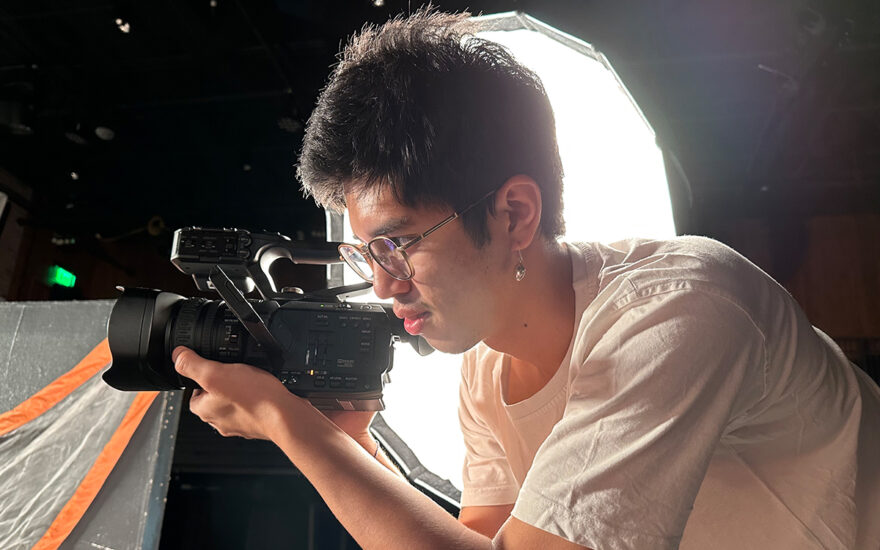We’re anything but camera shy.
Action! That’s the word that best describes the academic life of a screen studies major at Clark. Here, you’ll dive deep into the history, theory, and aesthetics of film, television, and new media. In addition to historical and theoretical studies, you’ll step behind the camera as you learn from hands-on experience how to develop a movie from concept to screenplay to premiere.
Of course, film and video productions can never be separated from the society from which they emerge. Our curriculum encompasses the cultural, economic, and technical developments that influence motion pictures and all video art, both domestic and international.
Learn in the classroom. Learn in our editing suites. Direct your own education.


